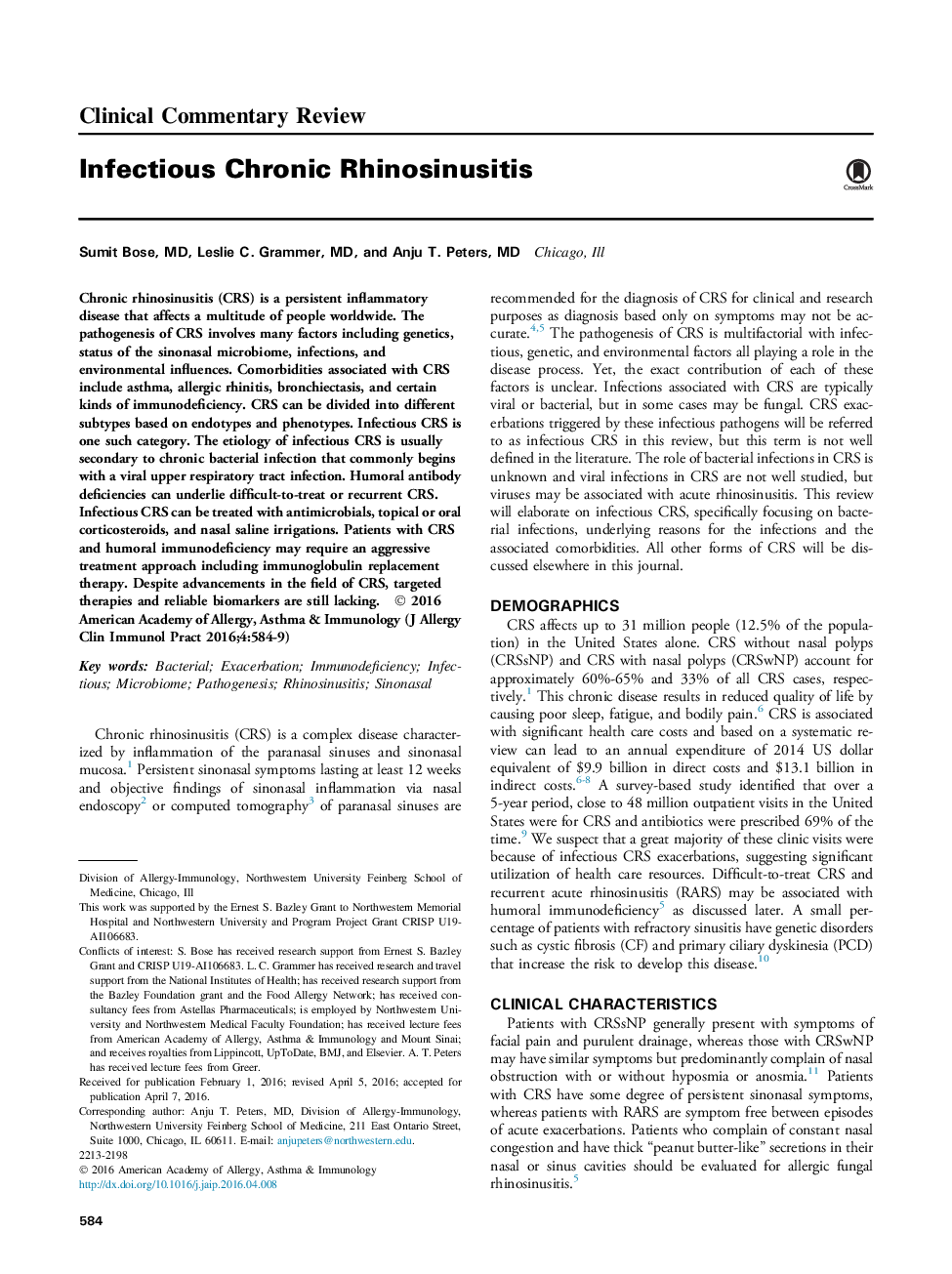| Article ID | Journal | Published Year | Pages | File Type |
|---|---|---|---|---|
| 6068094 | The Journal of Allergy and Clinical Immunology: In Practice | 2016 | 6 Pages |
Abstract
Chronic rhinosinusitis (CRS) is a persistent inflammatory disease that affects a multitude of people worldwide. The pathogenesis of CRS involves many factors including genetics, status of the sinonasal microbiome, infections, and environmental influences. Comorbidities associated with CRS include asthma, allergic rhinitis, bronchiectasis, and certain kinds of immunodeficiency. CRS can be divided into different subtypes based on endotypes and phenotypes. Infectious CRS is one such category. The etiology of infectious CRS is usually secondary to chronic bacterial infection that commonly begins with a viral upper respiratory tract infection. Humoral antibody deficiencies can underlie difficult-to-treat or recurrent CRS. Infectious CRS can be treated with antimicrobials, topical or oral corticosteroids, and nasal saline irrigations. Patients with CRS and humoral immunodeficiency may require an aggressive treatment approach including immunoglobulin replacement therapy. Despite advancements in the field of CRS, targeted therapies and reliable biomarkers are still lacking.
Keywords
CRSsNPNTHiCRSwNPCVIDSTAT3PCDCFTRCRSNontypeable Haemophilus influenzaeRARsBacterialexacerbationPrimary ciliary dyskinesiacystic fibrosis transmembrane conductance regulatorChronic rhinosinusitis with nasal polypsRhinosinusitisChronic rhinosinusitis without nasal polypsChronic rhinosinusitisSinonasalURTIUpper respiratory tract infectionInfectiousSADCystic fibrosissignal transducer and activator of transcription 3MicrobiomeCVID, common variable immunodeficiencyPathogenesisSingle nucleotide polymorphismSNPspecific antibody deficiencyImmunodeficiency
Related Topics
Life Sciences
Immunology and Microbiology
Immunology
Authors
Sumit MD, Leslie C. MD, Anju T. MD,
